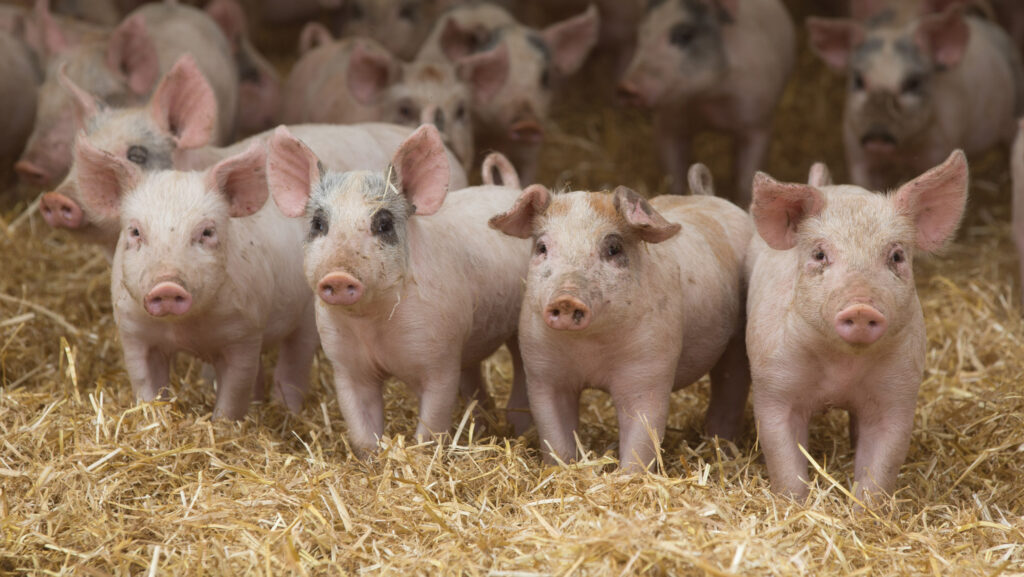How to plan and prepare for African swine fever
 © Tim Scrivener
© Tim Scrivener Pig producers are advised to double down on biosecurity and be as prepared as possible for the possibility of African swine fever crossing the Channel.
The first case of African swine fever (ASF) outside Africa was reported in Georgia in 2007. From there, it spread to neighbouring countries and has gradually made its way west since.
See also: The value of the dead pig: Benefit of post-mortems
Speaking at this year’s Pig and Poultry Fair (15-16 May), a panel including Gemma Thwaites, clinical director at Garth Pig Practice; Mandy Nevel, head of animal health and welfare at AHDB; Lizzie Wilson, chief executive of the National Pig Association (NPA) and Julian Sparrey of Livetec Systems, discussed how imminent the threat is to UK producers as well as how they can best prepare for outbreaks.
“Certainly, we should be worried,” said Gemma. “The disease has been spreading ever since then [2007]. We had a big hop in 2019 to [cases spreading to] Belgium and it’s a really scary picture.
“A jump towards the West is definitely occurring and we now have it in Germany and Italy, so it looks like it’s on its way [to the UK].”
Here, the experts share their advice for preparing for ASF and, ultimately, keeping it off UK farms.
What is African swine fever?
ASF is a highly infectious disease that can affect all pigs and is spread by healthy stock coming into contact with infected meat or meat products, faeces or body fluids, or a person or vehicle contaminated with the virus from handling infected animals.
Clinical signs can vary and include fever, lethargy and reduced feed intake, as well as sudden mortality, with no previous signs of a pig being unwell.
More severe symptoms include vomiting, diarrhoea and abortion in pregnant sows.
What to do if a case of ASF is suspected
ASF is a notifiable disease, so it is a legal requirement to notify the authorities (see “ASF key contacts – who to call”) as soon as a case is suspected – not diagnosed, says Gemma. “Failure to do so is an offence,” she warns.
ASF key contacts – who to call
- England – if African swine fever is suspected, it must be reported immediately by calling the Defra Rural Services Helpline on 03000 200 301
- Wales – contact 0300 303 8268
- Scotland – contact your local Field Services Office
Failure to do so is an offence.
Source: Defra
What happens after a suspected case is reported?
After a call is made to Defra — or the devolved authority — immediate restrictions will be implemented on the farm over the phone, explains Mandy.
“At this point, no one will be able to move on or off the farm, including any vehicles.”
Following this, vets from the Animal and Plant Health Agency (Apha) will arrive on farm to investigate and take samples. The vets will also issue written instructions on restrictions.
Temporary control zones are then likely to be established, with restrictions remaining in place until the investigation is over.
If a case is confirmed, the Defra action plan says that infected premises will remain under restrictions and action would be taken to eradicate the disease by culling pigs and completing a full disinfection of the site.
Surrounding protection and surveillance zones would also be put in place and would face restrictions and monitoring.
All exports containing pigmeat would immediately stop, and the country would lose its disease-free status for ASF, explains Mandy.
What prevention measures can be done on farm?
To prevent ASF, biosecurity is paramount. Gemma notes that in mainland Europe there have been cases where a farm surrounded by infected units has prevented the disease coming onto their site simply by having good biosecurity.
This includes disinfecting footwear, outer clothing and vehicles coming on and off the farm.
To prepare in case of a disease outbreak, key actions growers can take now include:
- Ensure all staff are aware of the signs of ASF and who to call if it is suspected
- Keep important phone numbers – farm vet, Apha, feed merchant, farm assurance, processor and so on – in a visible place for all key contacts
- Keep all farm movements clearly documented and readily available. Digital records are best in case the farm office cannot be accessed during an outbreak
- Put a robust contingency plan in place that takes into consideration how the business would manage if the farm was placed in a disease control zone.
A basic contingency plan should include:
- Farm information and key contacts
- Site map with OS co-ordinates/What3words for entry points, shed entrances, gateways and so on
- Details of individual buildings and stock
- Plans for temporary housing, feed, straw, muck, slurry storage and disposal should movements be restricted
- Considerations for welfare culling.
Lizzie suggests the protocols should cover at least 30 days of restricted movements on and off the farm.
They should take into consideration factors such as any other businesses on the site that could be impacted, how it could affect any children going to school or carers coming in to attend to elderly family members.
“It’s better to prepare in peacetime than panic during a crisis,” concludes Mandy.

